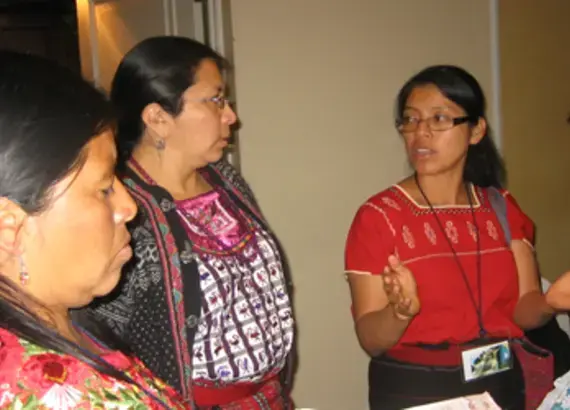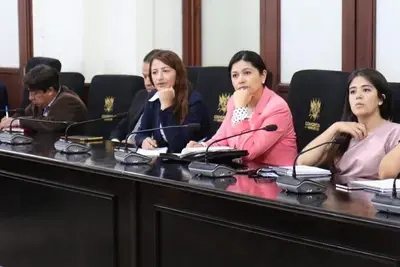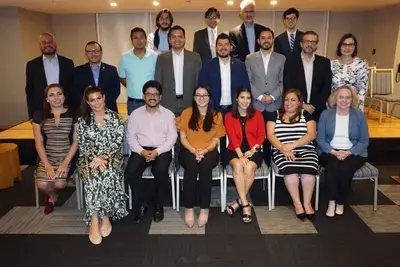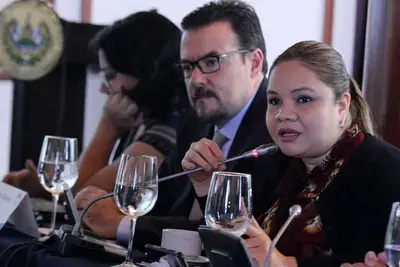
Success Story
New Report Examines the Reality of Women’s Participation in Guatemalan Politics
While women in Guatemala have slowly been making political gains, a new report by NDI and UN Women shows that a significant gender gap persists. The report, Between Challenge and Reality: Women and Political Participation in Guatemala, examines the progress made in recent elections, some obstacles women face and potential areas for improvement.
The report traces women’s participation starting with Guatemala’s 2007 general elections in which only 19 women, including four indigenous women, were elected to the 158-member unicameral Congress.
Women did make some gains in the 2011 general elections. A majority of presidential tickets included women as running mates, and the country elected its first female vice president. Women also won six of Guatemala’s 20 seats at the Central American Parliament.
But women, who comprise 51 percent of the electorate, won only 21 seats - 13 percent - in Congress that year. For indigenous women, the percentage was smaller, with only three elected, lowering their representation from 2.5 percent to 1.8 percent. Of the 333 mayoral races that year, only seven women were victorious, none of them indigenous.
The report found that social customs related to women’s traditional roles as well as institutional shortcomings within political parties and the electoral system were the main challenges for women running for office in Guatemala. The report cited several challenges, including:
- The prevalence of women without official identification documents in rural areas, which limits their ability to register to vote and run for office;
- The lack of recognition of women’s leadership skills by political parties and organizations, which limits the number of positions open to women within political groups;
- Communication complications due to Illiteracy or candidates who speak only their indigenous language;
- A lack of a formal education among women who wish to be in politics, which makes them seem less qualified than male counterparts with a college education; and
- Voters’ lack of trust in women’s authority and political capability.
The report analyzed electoral data, electoral and political party laws, and reports by other nongovernmental organizations, and included focus group research with political experts and surveys with women mayors and former members of Congress.
NDI, with support from the National Endowment for Democracy, began working in 2008 with political parties on expanding their efforts to include rural, marginalized areas of the country and providing women and indigenous people with political training to encourage them to run for office.
NDI continues to support initiatives advancing women’s political participation in Guatemala with support from the U.S. Agency for International Development. With NDI technical assistance, the Guatemalan Congress drafted an electoral reform law that, if passed, would establish a 30 percent quota for women legislators, which would more than double the number of women in Congress after the 2015 general elections.
Read more:
Published Jan. 24, 2014



